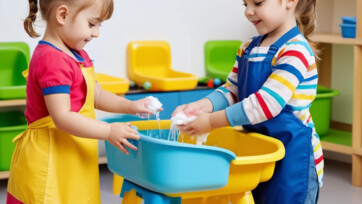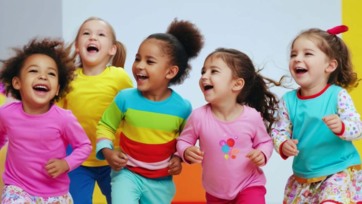Establishing a routine in preschool is essential for children’s growth and development. A consistent schedule provides children with a sense of security, helping them understand what to expect throughout the day. It also teaches them important life skills like time management and independence. A typical preschool routine may include activities like circle time, snack time, playtime, and naptime. Through repetition, children become more comfortable and confident in their environment. They learn how to follow instructions, respect time, and adapt to changing activities. Having a routine also helps children develop self-regulation and emotional control, as they become aware of when it’s time to switch from one activity to another. Consistency in their daily lives contributes to a calmer, more focused learning atmosphere.




